
ADHYATMA RAMAYANAM: 2 Volumes
Book Specification
| Item Code: | IDF795 |
| Author: | DR. K. P. A. MENON |
| Publisher: | THE YOGA INSTITUTE |
| Language: | Text with Introduction & English Translation |
| Edition: | 2003 |
| ISBN: | 8170813832 |
| Pages: | 2642 |
| Cover: | Hardcover |
| Other Details | 8.7" X 6.0" |
| Weight | 2.20 kg |
Book Description
About the Book (Part-I):
The Adhyatma Ramayanam is as the title would indicate a spiritual version of the Ramayanam. While Valmiki Ramayanam as an Itihasa was composed with the objectives of giving proper advice on all the four goals of life, Dharma, Arth, kama and Moksa, the Adhyatma version is primarily concerned with the last and final goal. Devotion to the feet of the Supreme Lord in the form of Rama is the surest and easiest means of achieving this objective. To give it a special sanctity, the whole composition is in the form of a dialogue between Goddess Parvati and her lord Siva who himself is described as the greatest devotee of Rama. Included at a later stage as an appendix to the Bramanda Purana, its actual authorship is still a matter of speculation. A palm leaf manuscript of great antiquity which is an heirloom of the translator's family has been utilized for bringing the most authentic version as prevalent in Kerala.
About the Book [Part-II]:
The Adhyatma version of the Ramayanam is in the form of a dialogue between Uma and Mahesvara in seven parts described as Kandas. Though the composer has generally followed Valimiki's version in narrating the story of Rama along with Sita and Laksmana, there are some serious deviations also on occasions. To start with Lord Vishnu is solicited by the Goddess Earth and other two brothers, of the Lord's a conch and discus. In spite of many variations it will appear that ultimately it is a only a modified version of Valimiki epic composed with the objective of giving proper enlightenment on the different paths of liberation, primacy being given to that of devotion. Lord Siva himself refers to it as the quintessence of the Vedas.
About the Author:
Dr. K. P. A. Menon Chancellor of the Lal Bahadur Shastri Rashtriya Sanskrit Vidyapeeth, New Delhi is an eminent scholar scientist and administrator who has held many important assignments in the governments including the post of Defence Secretary to the Govt. of India Epic poetry and dramas have been his special field of interest and he is also trying to unearth the vast treasure contained in Sanskrit literature in diverse fields like agriculture science and technology , politics etc: He is the recipient of a large number of national of international awards including the honorary Fellowship of the Biographical Academy of the commonwealth & international Biographical Centre, Cambridge Award of he American Biographical Institute, Albert Einstein Memorial Medal as well as the Sahitya-Nikasa and the Kalidasa Awards for his Sanskrit Writings. He has also been vested with the titled of Panditaratnam by the Visva Samskrita Pratisthanam.
PART I
| Preface | iii-v | |
| Introduction | vii-lxviii | |
| The Greatness Thereof | 1-25 | |
| | 26-175 | |
| Canto 1 | The Truth about Sri Rama | 28-51 |
| Canto 2 | Announcement of the Incarnation | 52-65 |
| Canto 3 | The Incarnation of Sri Rama | 66-89 |
| Canto 4 | Arrival of Visamitra | 90-101 |
| Canto 5 | Redemption of Ahalya | 102-125 |
| Canto 6 | Marriage with Sita | 126-153 |
| Canto 7 | Overcoming Bhargava Rama | 154-175 |
| | 177-441 | |
| Canto 1 | Conversation between Raghava and Narada | 178-193 |
| Canto 2 | Proposal for consecrating Rama | 194-223 |
| Canto 3 | The Obsructed Coronation | 224-251 |
| Canto 4 | Rama's Exile | 252-283 |
| Canto 5 | Rama's Departure to the Forest | 284-309 |
| Canto 6 | Rama at Chitrakuta | 310-341 |
| Canto 7 | King Dasaratha's Demise | 342-383 |
| Canto 8 | Bharata's Arrival | 384-407 |
| Canto 9 | Consecration of the Sandals | 408-441 |
| | 443-643 | |
| Canto 1 | The Killing of Viradha | 445-461 |
| Canto 2 | Visit to the Asramas of Sarabhanga and Sutiksna | 462-479 |
| Canto 3 | At the Asrama of the Sage Agastya | 480-499 |
| Canto 4 | Towards Pancavati | 500-519 |
| Canto 5 | Surpanakha's Mutilation | 520-541 |
| Canto 6 | The Commissioning of Mariica | 542-557 |
| Canto 7 | Abduction of Sita | 558-581 |
| Canto 8 | Imancipation of Jatayu | 582-603 |
| Canto 9 | Liberation of Kabandha | 604-625 |
| Canto 10 | At the Hermitage of Sabari | 626-643 |
| | 645-852 | |
| Canto 1 | Alliance with Sugriva | 646-681 |
| Canto 2 | The Destruction of Vali | 682-707 |
| Canto 3 | Tara becomes Enlightened | 708-727 |
| Canto 4 | Advice on rituals of Worship | 728-747 |
| Canto 5 | Laksmana's Anger | 748-769 |
| Canto 6 | Search for Sita | 770-779 |
| Canto 7 | Preparing for Self-immolation | 800-819 |
| Canto 8 | The Story of Sampati | 820-839 |
| Canto 9 | Hanuman's Greatness | 840-851 |
| | ||
| | 853-977 | |
| Canto 1 | Hanuman's Crossing the Ocean | 854-875 |
| Canto 2 | Hanuman's Search for Sita | 876-897 |
| Canto 3 | Delivering Srirama's Message | 898-933 |
| Canto 4 | Burning of Lanka | 934-953 |
| Canto 5 | Hanuman's Return | 954-977 |
| | 979-1387 | |
| Canto 1 | The Army of Monkeys March to Lanka | 980-999 |
| Canto 2 | Vibhisana's Expulsion | 1000-1017 |
| Canto 3 | Vibhisana Approaches Rama for Shelter | 1018-1049 |
| Canto 4 | Bridging the Ocean | 1050-1069 |
| Canto 5 | The Battle Begins | 1070-1099 |
| Canto 6 | Kalanemi's Mission | 1100-1123 |
| Canto 7 | Hanuman in Search of the divine Medicine | 1124-1147 |
| Canto 8 | The Killing of Kumbhakarna | 1148-1173 |
| Canto 9 | The Killing of Indrajit | 1174-1197 |
| Canto 10 | Obstructing the Homa of Ravana | 1198-1219 |
| Canto 11 | The Killing of Ravana | 1220-1251 |
| Canto 12 | Sita's Fire Ordeal | 1252-1281 |
| Canto 13 | Hymns Celestials in Praise of Rama | 1282-1307 |
| Canto 14 | Rama's Return to Ayodhya | 1308-1341 |
| Canto 15 | The Coronation of Srirama | 1342-1369 |
| Canto 16 | The Glory of Rama's Reign | 1370-1387 |
| | 1389-1617 | |
| Canto 1 | The Origin of Racana and other Raksasas | 1390-1413 |
| Canto 2 | Ravana's Conquests | 1414-1441 |
| Canto 3 | The origin of Vali and Surgiva | 1442-1463 |
| Canto 4 | Sita abandoned | 1464-1487 |
| Canto 5 | Srirama Gita | 1488-1513 |
| Canto 6 | The Killing of Lavanasura and the Birth of Kusa and Lava | 1514-1533 |
| Canto 7 | The Glory of Sita | 1534-1563 |
| Canto 8 | Laksmana's Expulsion | 1564-1589 |
| Canto 9 | Attainment of Heaven | 1590-1617 |
| Index of Shlokas | 1619-1791 |





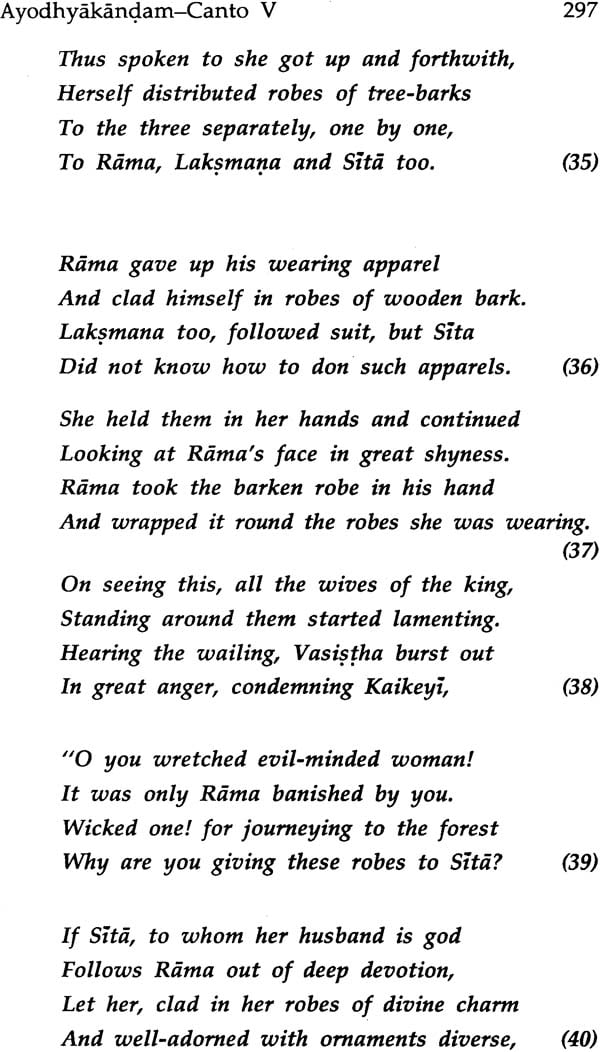
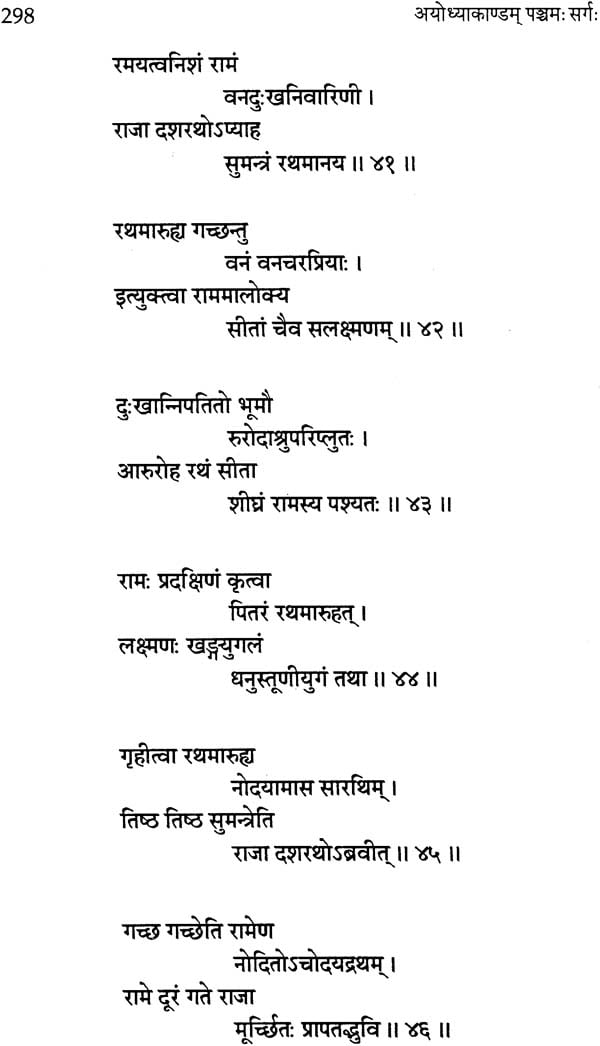
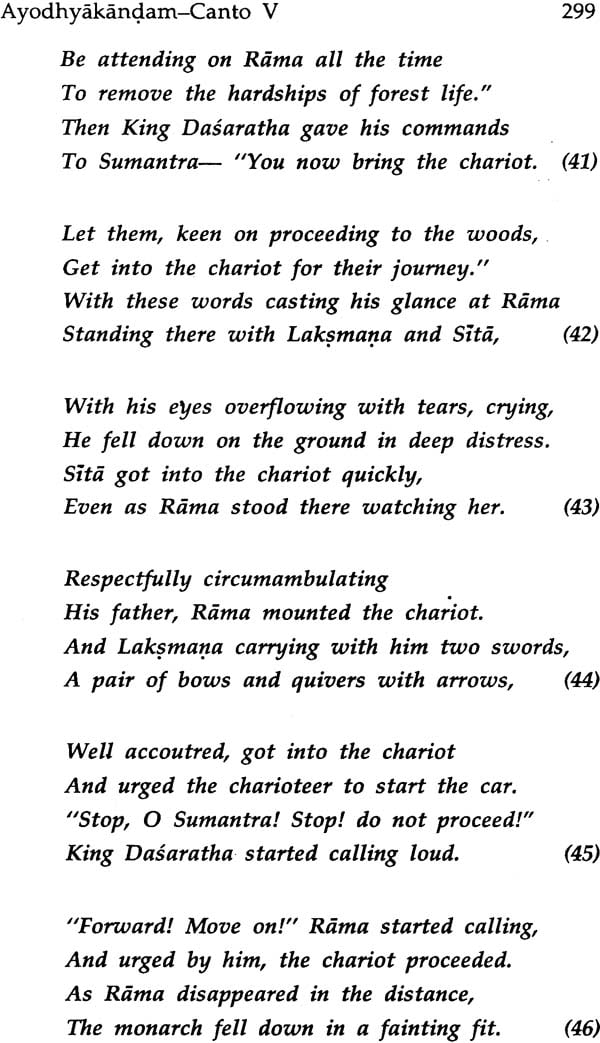

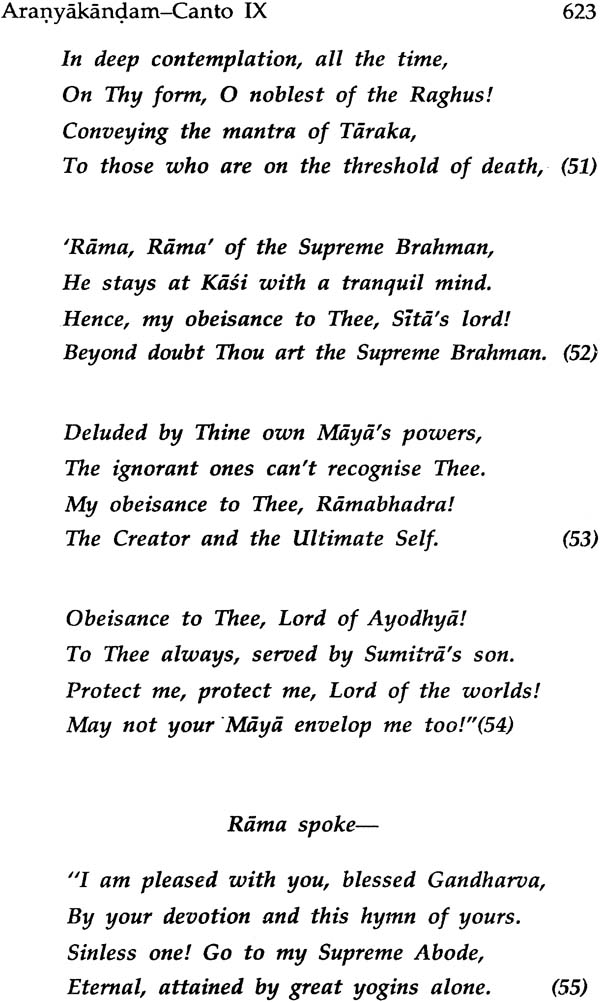
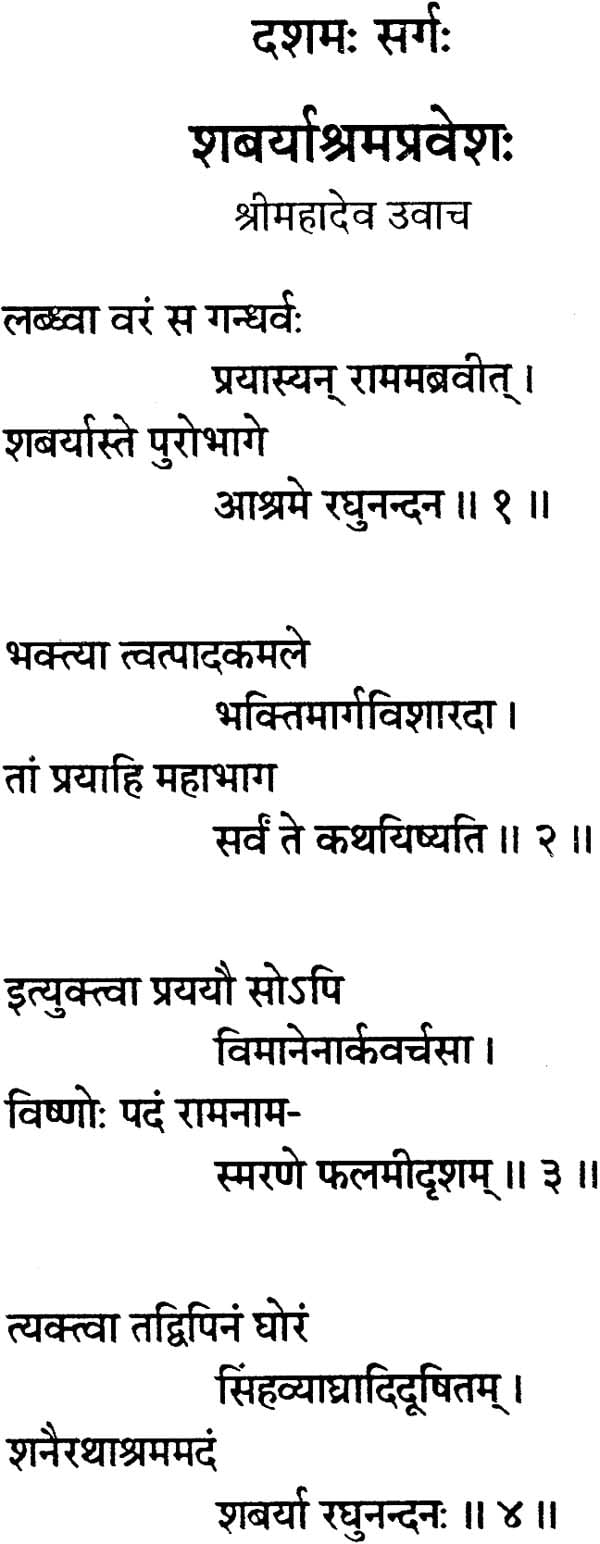

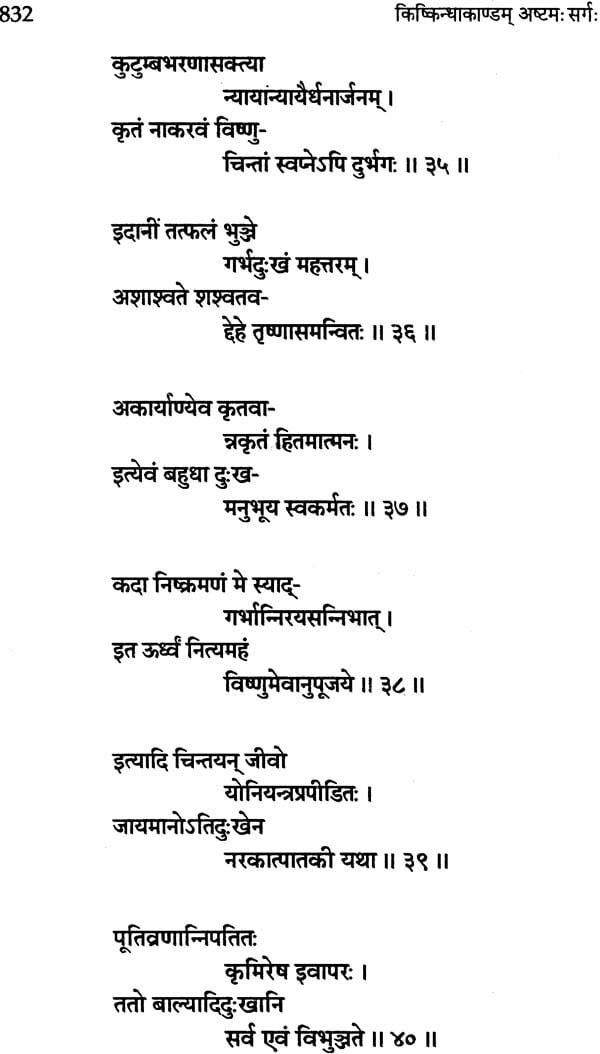
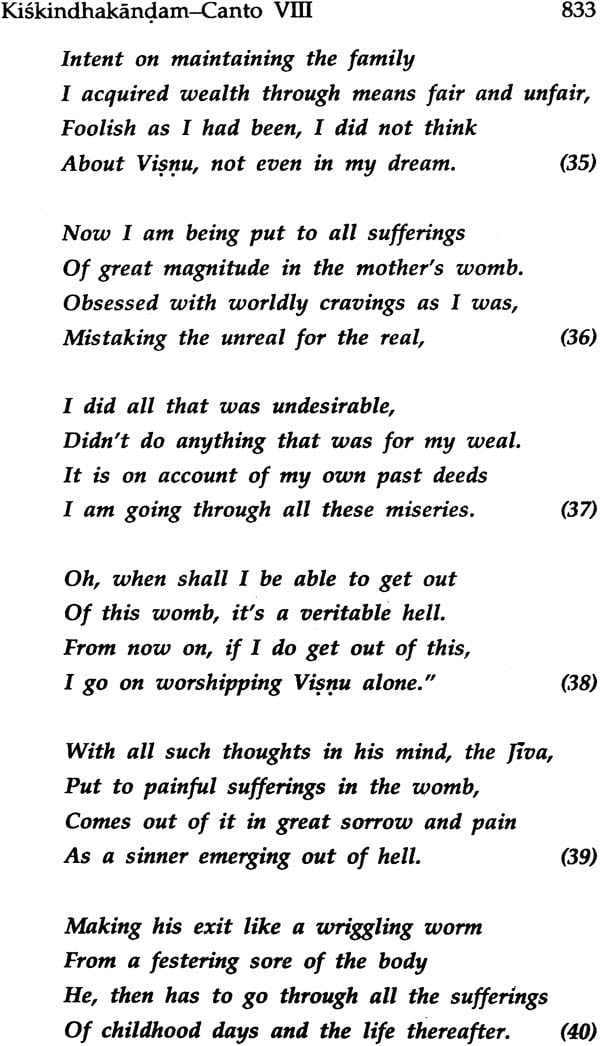
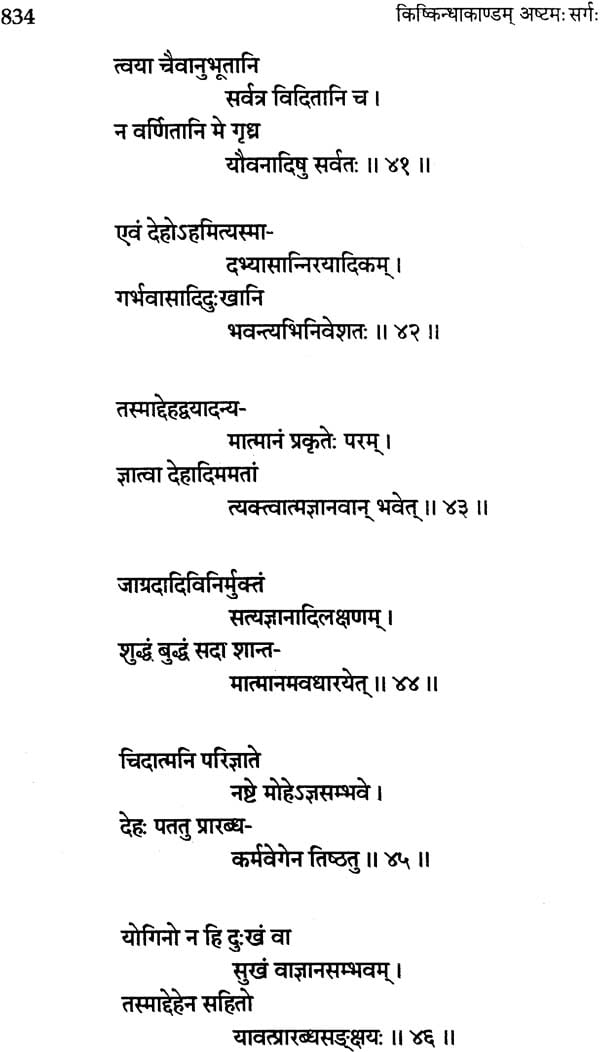
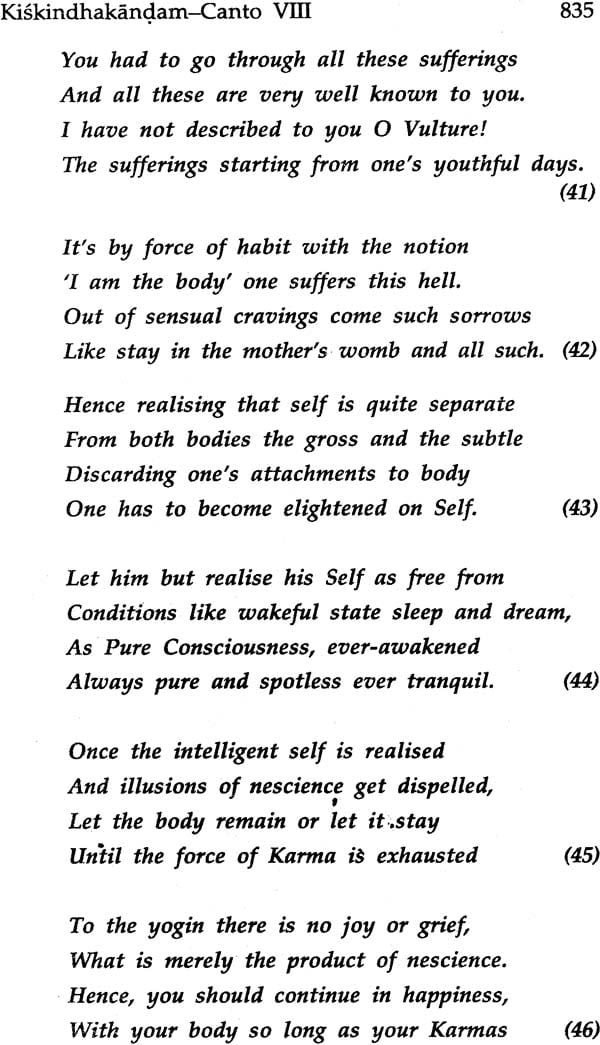
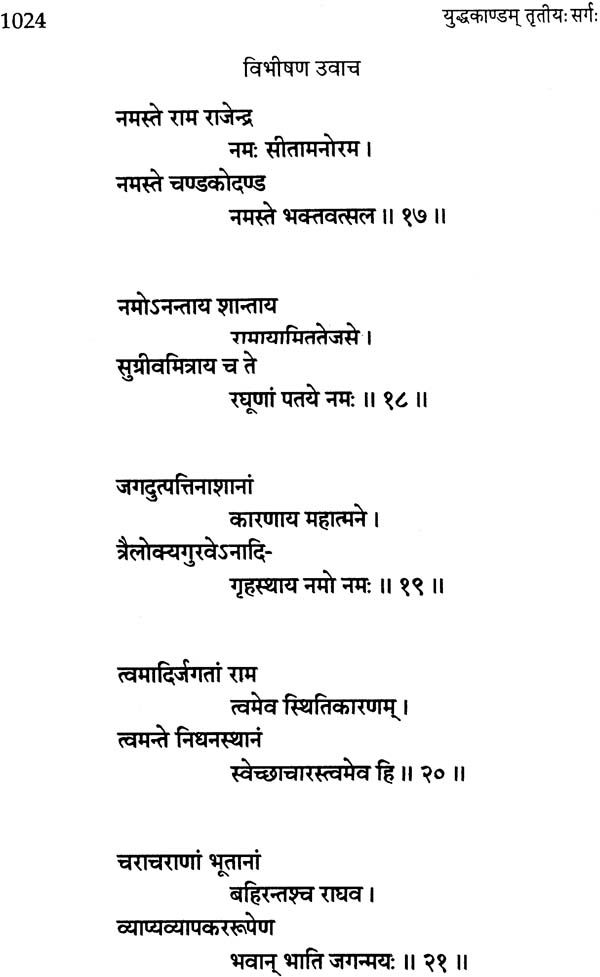
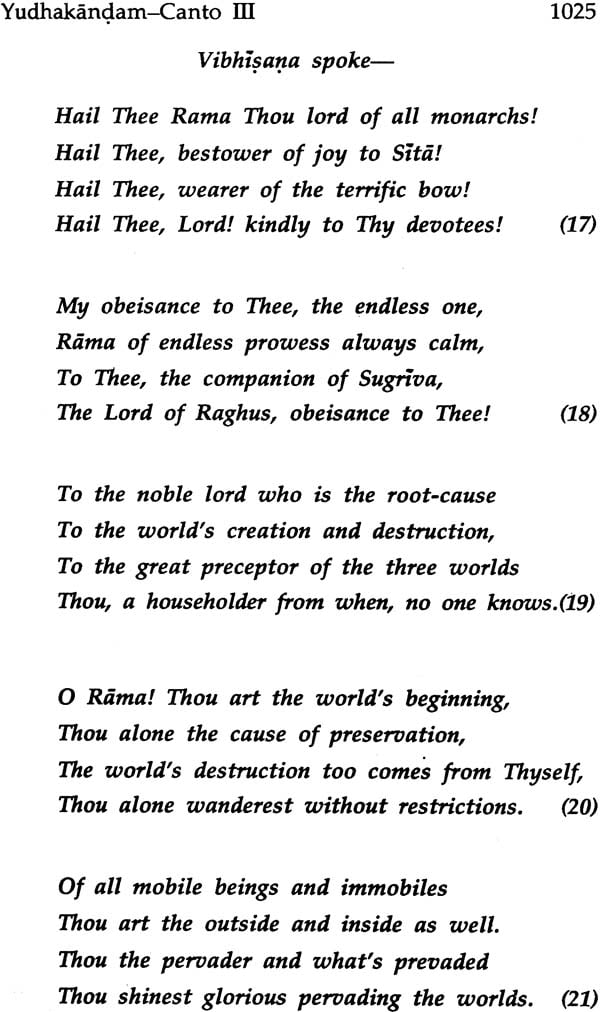
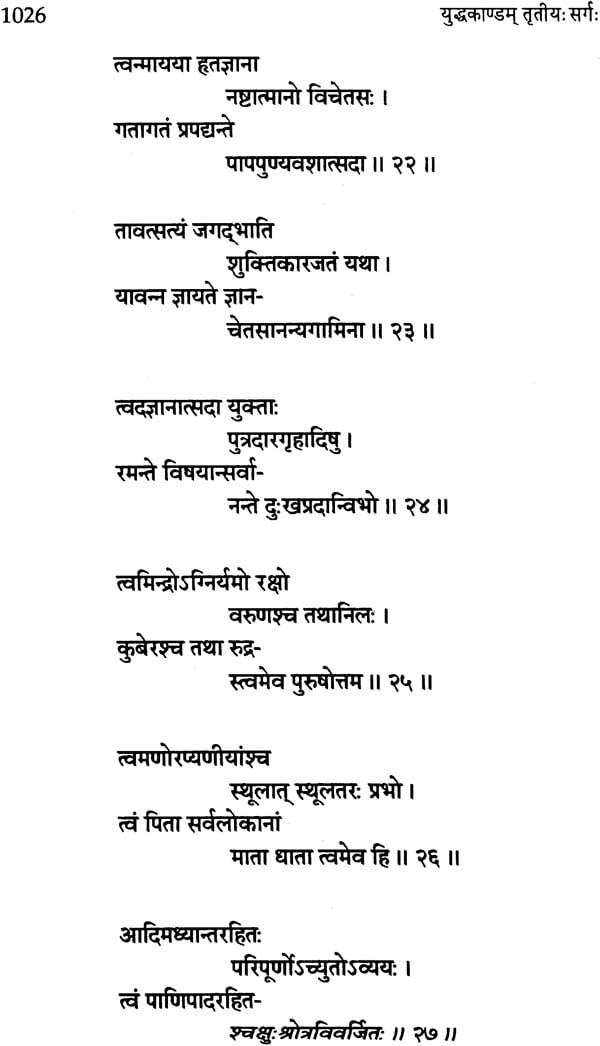
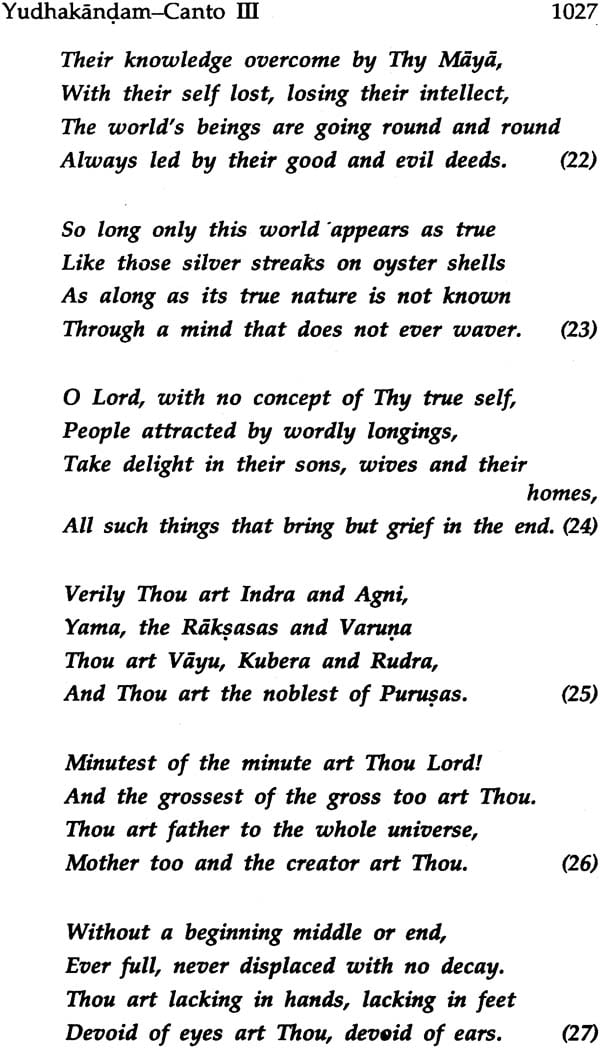
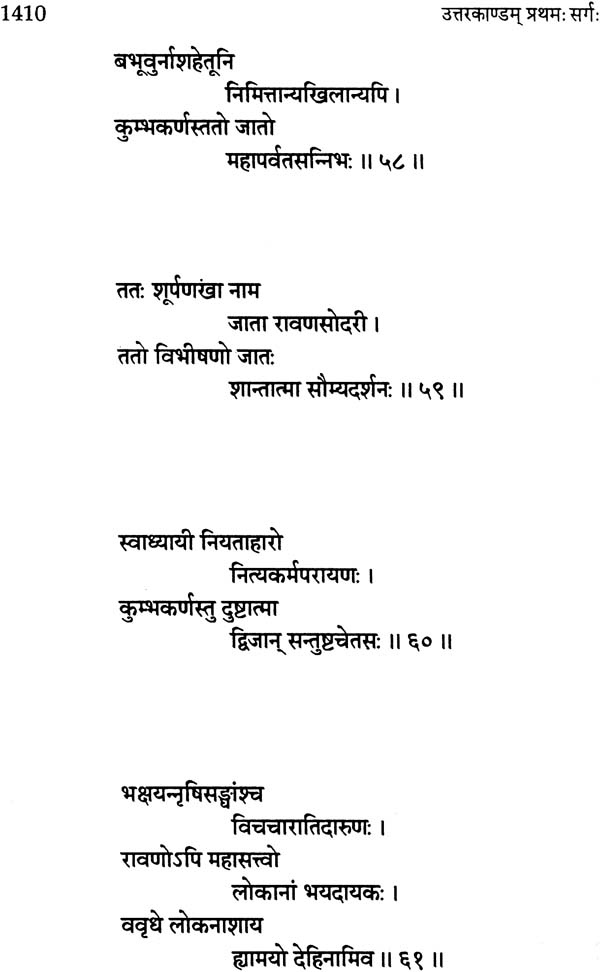
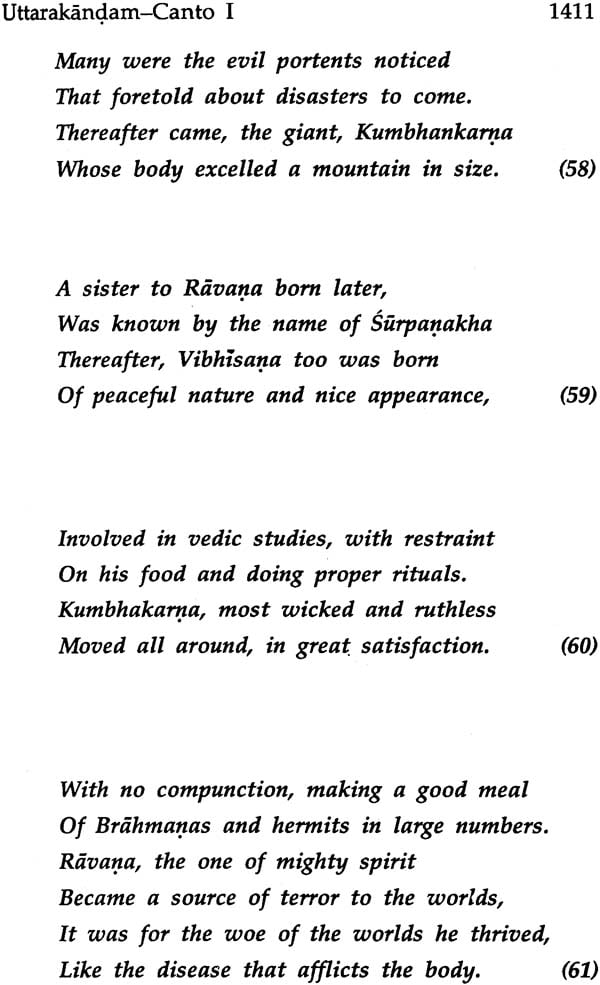
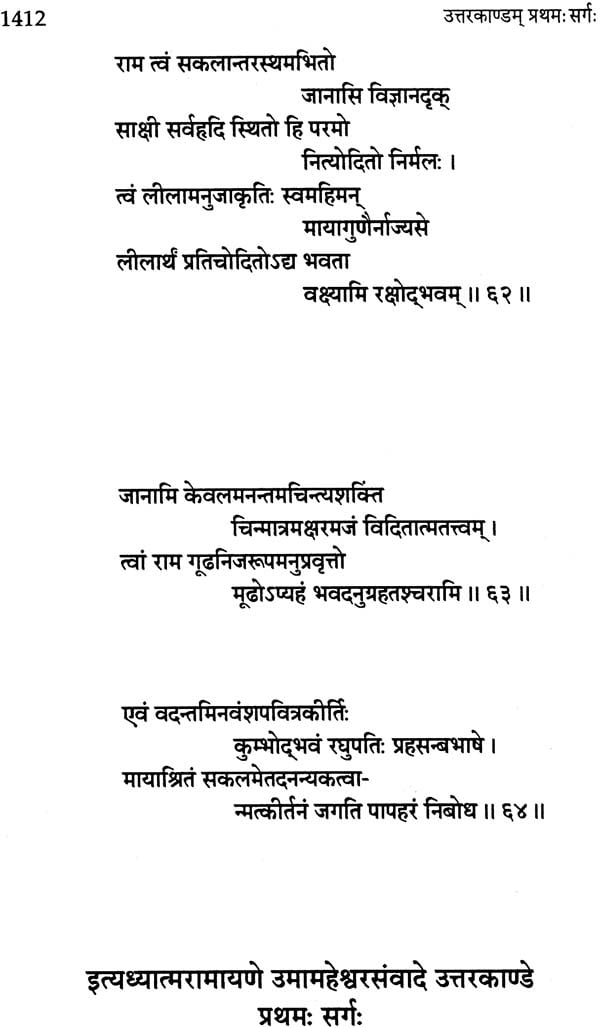
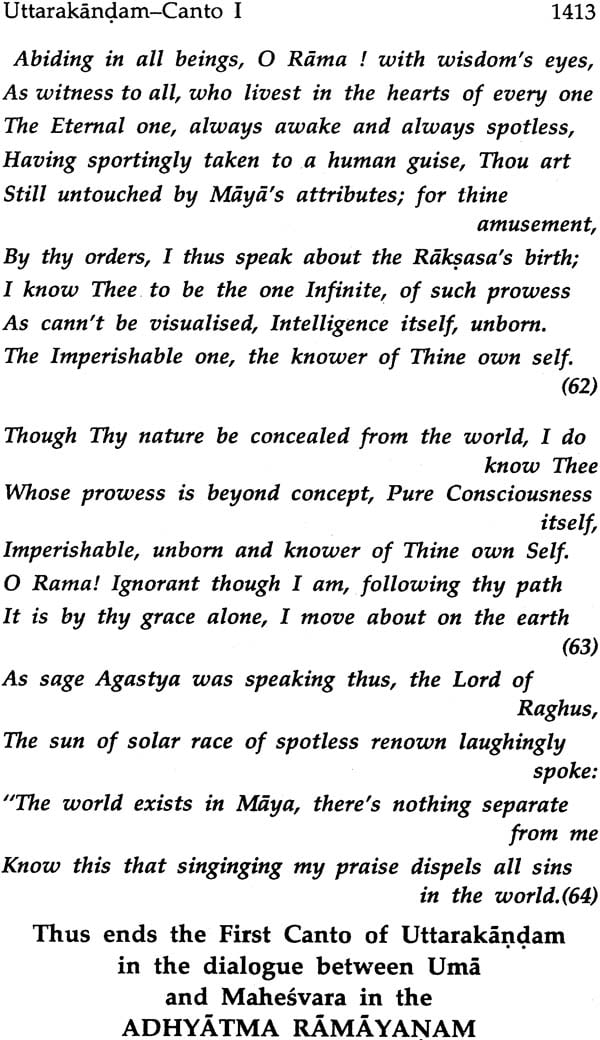

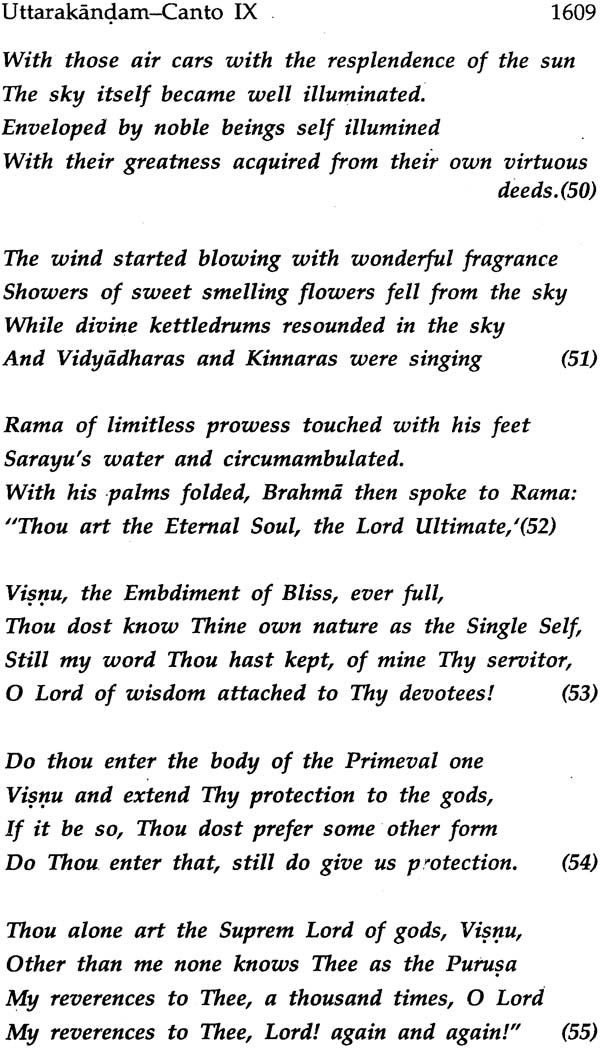
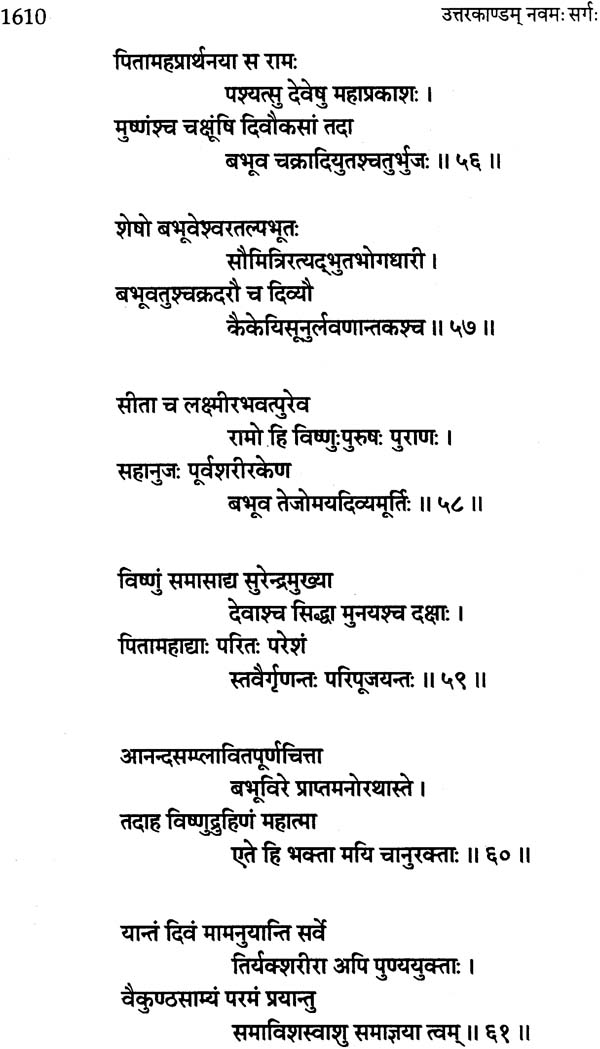
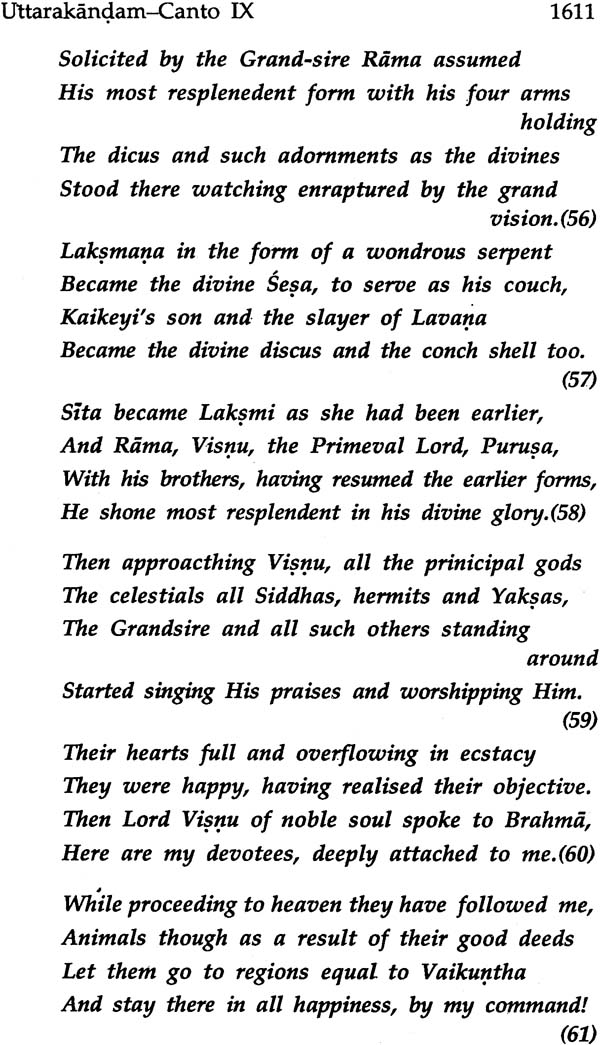
 to all international destinations within 3 to 5 days, fully insured.
to all international destinations within 3 to 5 days, fully insured.




